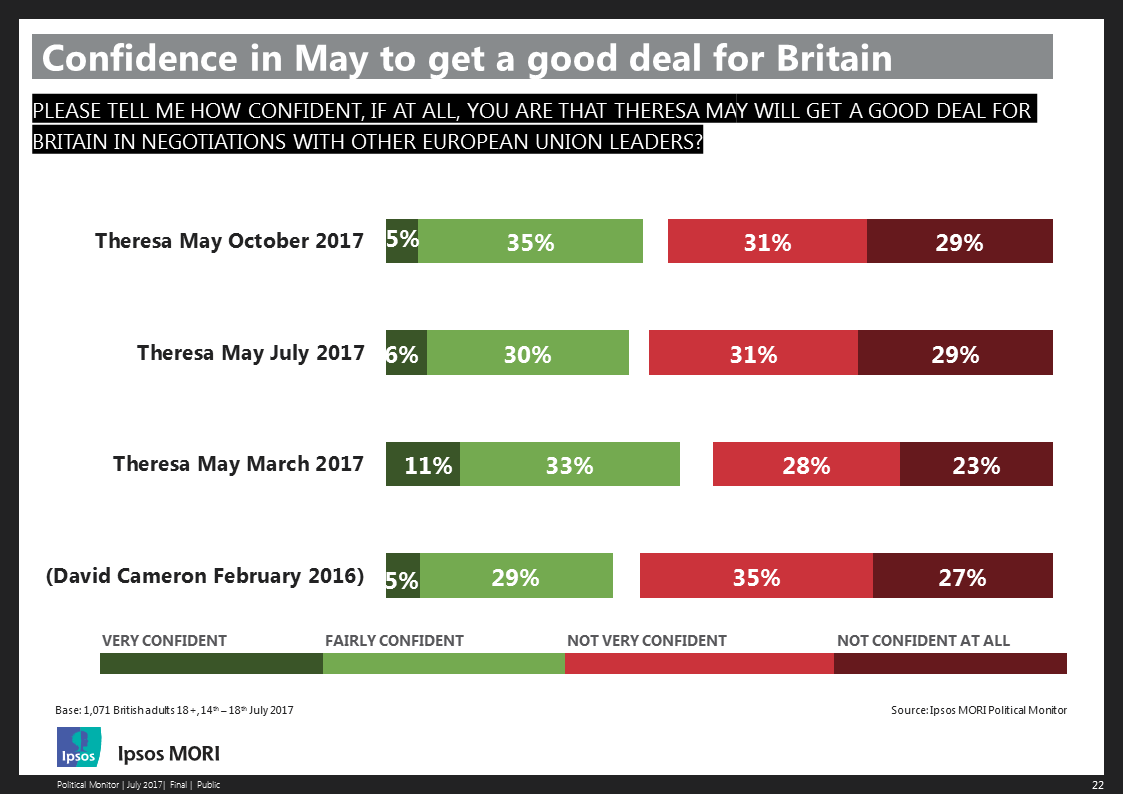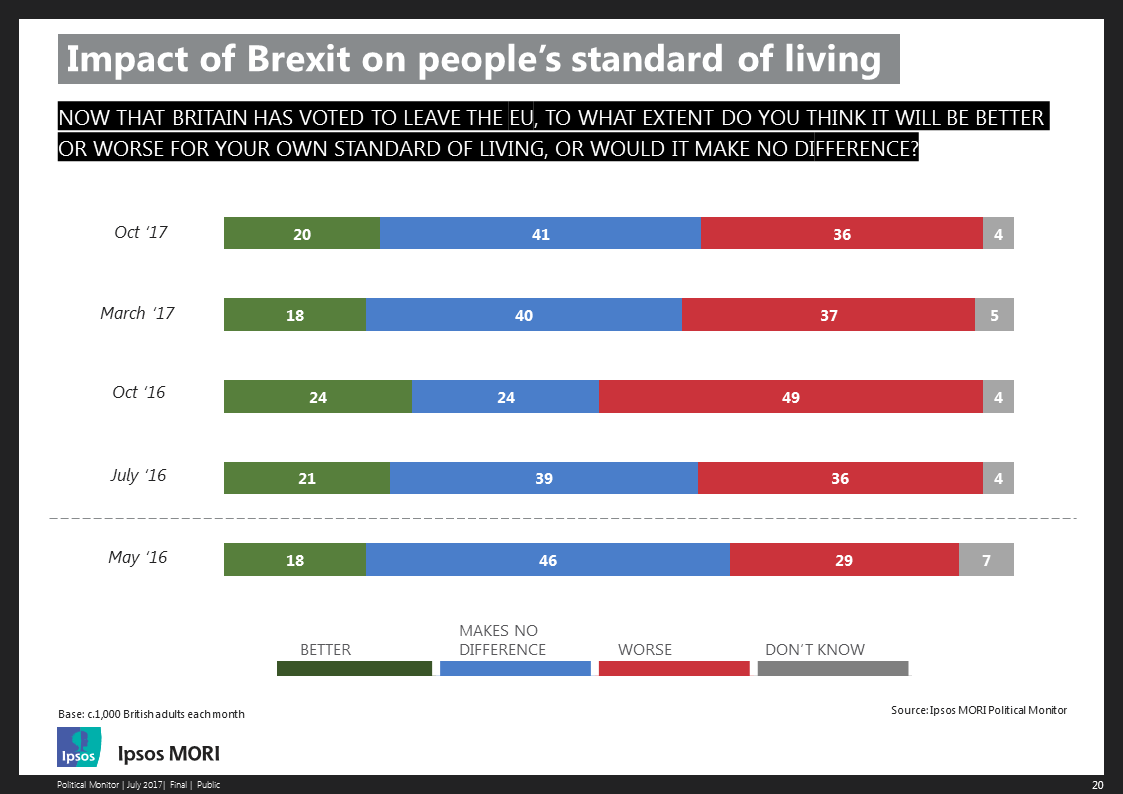Confidence in Theresa May to get a good deal for Britain in Brexit negotiations remains low
- Confidence in Theresa May to get a good deal for Britain in Brexit negotiations remains low
- Half pessimistic about the economy overall - young people and graduates the most worried about impact of Brexit on their own standard of living
As the Brexit negotiations continue Ipsos’s latest Political Monitor reveals little confidence among the public that the Prime Minister will get a good deal for Britain. Three in five (60%) are either ‘not very’ or ‘not at all’ confident in the PM getting a good deal – just over a third (36%) are either ‘very’ or ‘fairly’ confident in her. Nonetheless two-thirds (66%) of Conservative supporters have confidence that she will strike a good deal compared with one in five (19%) Labour supporters and quarter (26%) of Liberal Democrats. Overall few members of the public think Theresa May is doing a good job handling Brexit. A third (32%) say she is doing a good job but a majority (55%) say she is doing a bad job. Neither of these measures show any big change since last asked in July, but both are down from Mrs May’s ratings before the election.
 When it comes to the negotiations half (49%) think Britain should prioritise having access to the single market while 37% think it should be controlling immigration. There is a clear difference of opinion between younger and older people on where the priority should lie. Three in five (58%) 18-34 year olds say the priority should be access to the single market (28% say immigration control) while nearly half (47%) of those aged 55+ want immigration control (38% say access to the single market).
When it comes to the negotiations half (49%) think Britain should prioritise having access to the single market while 37% think it should be controlling immigration. There is a clear difference of opinion between younger and older people on where the priority should lie. Three in five (58%) 18-34 year olds say the priority should be access to the single market (28% say immigration control) while nearly half (47%) of those aged 55+ want immigration control (38% say access to the single market).
When asked if their own standard of living will get better or worse as a result of Brexit, a third (36%) say it will get worse compared to one in five (20%) who think it will get better – two in five (41%) however think Brexit will make no difference. The balance of opinion shows little change since March. Young people are more likely than older people to think that their standard of living will get worse. Just under half (45%) of people aged 18-34 say it will get worse compared with a quarter (26%) of those aged 55+. Those with a degree are also more likely to say their standard of living will get worse (48%) compared with those without qualifications (26%).

Half the public (51%) believe the economy will get worse in the next year, while one in five (19%) think it will improve – leaving an Ipsos Economic Optimism Index score of -32. This shows little change from last month when it was at -31, but is a decline from -20 at the beginning of the year.
Ms May’s leadership satisfaction ratings continue to be lower than her pre-election peak although all leaders have seen little change in their ratings from last month. Thirty-seven percent say they are satisfied with Theresa May as Prime Minister while a majority (53%) are dissatisfied leaving her a net satisfaction score of -16. In comparison two in five (42%) are satisfied with how Jeremy Corbyn is doing his job as leader of the Labour Party – 45% are dissatisfied – leaving him a net satisfaction score of -3. Seven in ten (72%) Conservatives however still stand by Ms May saying they are satisfied in her doing her job (23% are dissatisfied). This is comparable to Jeremy Corbyn’s figures where 71% of Labour supporters say they are satisfied with him (21% dissatisfied). A quarter (26%) of the public say they are satisfied with Vince Cable as leader of the Liberal Democrats while a third (33%) are dissatisfied leaving him a net satisfaction score of -7 (42% opted for ‘don’t know’).
Our ongoing voting intention figures show Labour at 40% (-4 points), Conservatives at 38% (-2 points), and the Liberal Democrats at 9%.
Gideon Skinner, Head of Political Research at Ipsos, said:
Britons show no signs of becoming any happier with the Prime Minister’s handling of Brexit negotiations – though she is still retaining the confidence of most of her own party supporters. More widely, since the summer half of Britons have been stubbornly pessimistic about the economy, with young people and graduates the most worried about the impact of Brexit on their own standard of living, while older people are most likely to think they will be unaffected.
Technical Note
Ipsos interviewed a representative sample of 1,052 adults aged 18+ across Great Britain. Interviews were conducted by telephone 27th October – 1st November 2017. Data are weighted to the profile of the population.




